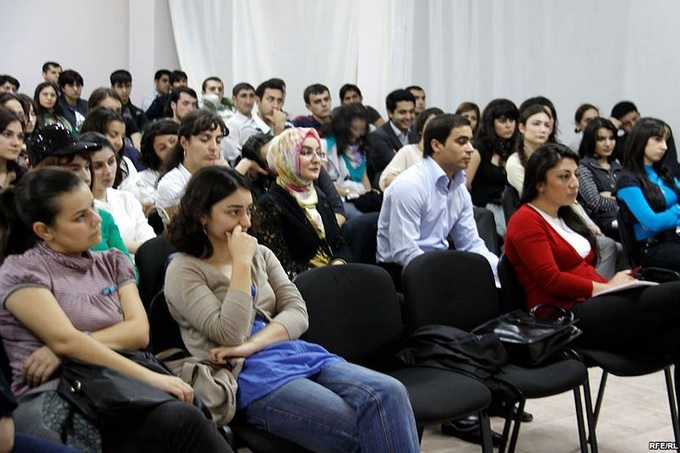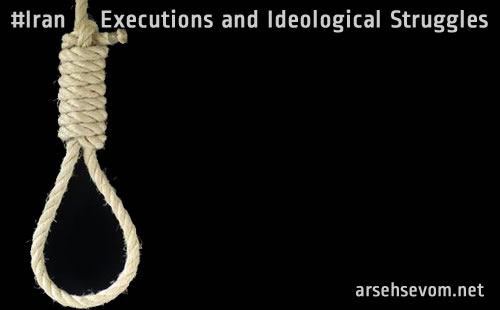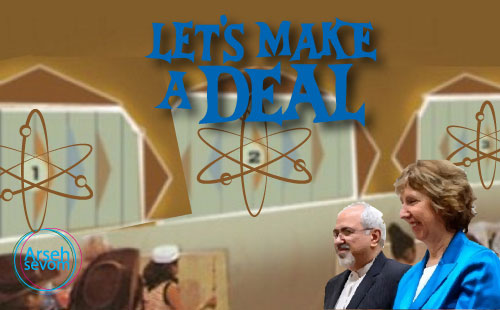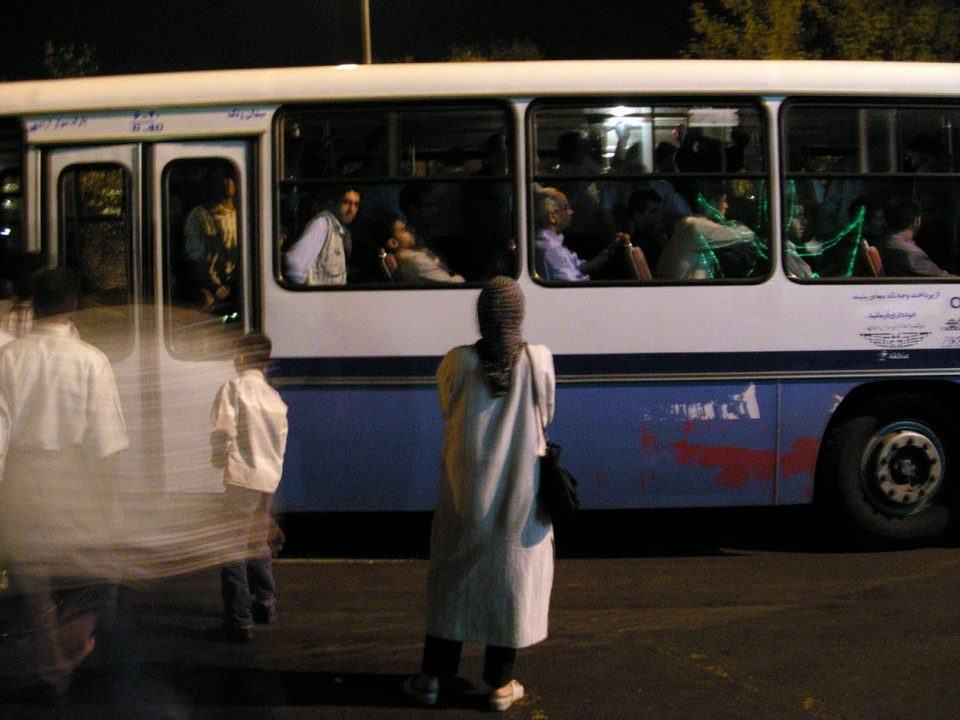
Azerbaijan: Rebuilding Culture from the Ruins
October 14, 2013
#Iran — Executions and Ideological Struggles
October 28, 2013Arseh Sevom — Nuclear negotiations are eclipsing other news in Iran. There are hopes that an agreement can be reached and that at least some of the sanctions will be relaxed. Attention to foreign relations seems to have left the Rouhani administration with little time to address domestic issues. This has led to a number of unfulfilled promises and a slow pace of change domestically. The application of economic sanctions continues to overreach their mandate, with internet freedom suffering. Wishes did not come true when it comes to the release from house arrest of Green Movement leaders. And theater goers in Tehran eagerly anticipate the opening of The Hills Are Alive, based on The Sound of Music.
by Peyman Majidzadeh
The New Round of Nuclear Talks: Let’s Make a Deal!
Iran’s nuclear case has been the main source of tension between the country and the international community in recent years. Iran has had 5 unsuccessful nuclear agreements [fa] in the past 10 years, which shows the depth of the problem. However, hopes rose again after the beginning of the new government’s term. Even the speaker of Iran’s parliament, Ali Larijani, entered the scene and spoke about the issue. In his interview [en] with Christiane Amanpour from CNN, Larijani said that Iran is ready for a nuclear deal.
Finally, the new round of negotiations was held in Geneva on Tuesday 15 October. According to Los Angeles Times [en], Iranian diplomats also held a rare private meeting with their U.S. counterparts. During an important part of the negotiations, Iranian Foreign Minister Mohammad Javad Zarif gave a presentation in English with the title: “Closing an Unnecessary Crisis – Opening New Horizons.” The Iranian team also had a proposal for the other negotiating party and Zarif had a private meeting with Catherine Ashton, the European Union’s foreign policy chief who acts as the point person for the six major powers.
The results are yet to be revealed in the upcoming days and months. However, they seem to be more positive than previous times. The fact that Benjamin Netanyahu reacted [fa] so quickly and called sanction lift on Iran a “historic mistake” shows the possibility of some lifting of sanctions.
International Companies to Continue Business with Iran
Interacting with the world is among the new government’s priorities. But how easy that is going to be? The European Union passed an act on transparency in foreign contracts in 2011, Deutsche Welle [fa] reported. According to the act, European companies are obliged to keep financial transparency both inside the country and in their international contracts. So, transparency is the key for Iran’s economy to enter the international scene. Some days ago, the head of the energy giant Total showed willingness to do business with Iran once sanctions are lifted. Let’s wait and see Iran’s reaction, provided that any sanction relief is achieved.
US Sanctions Hinder Internet Freedom in Iran
It is no secret that Iran’s regime disturbs free flow of information to get to its goals, but there are also other factors that should be taken into consideration. In his analysis [en], Collin Anderson divides US sanctions against Iran into two levels. The first and best-known are the laws and executive orders adopted by the US Government. The second however is the entangling set of risk-management decisions which those, tasked with complying with those laws, must address and undertake. Although the Departments of Treasury and State have rewritten the rules on technology exports to Iran, some applications are still beyond the reach of Iranians and some websites are unavailable in Iran because their US host does not want to risk being penalized by the State for its engagement with Iran. Tough, huh?
Mr. President, You’re Still Under Watch!
On 12 August 2013, Arseh Sevom [en] reported on a project called Rouhani Meter, designed to measure the new government’s performance in its first 100 days. Now, after more than 50 days, Iranwire [fa] has measured the new government’s performance in terms of each promise it had made. The average score for Rouhani and his team is 6.12 out of 20. Yes, they need to double their efforts.
Another report [fa] of the same website focuses on Rouhani’s promise to issue smart cards for special patients and cover their treatment expenses. The promise has yet to be achieved. Some observers argue that domestic issues are as important as foreign ones and the new government needs to take appropriate actions to address internal policies.
Mousavi and Karroubi: Final Decision to Be Announced
A number of political prisoners were freed recently. However, the Iranian judiciary’s spokesperson Mohseni Ejei said in his press conference that no more political prisoners will be freed in the upcoming religious holidays and Mohammad Khatami’s travel ban is still in place. He was asked about the speculation over the release of Mousavi and Karroubi and answered: “This speculation is not right and no specific event has taken place in this field.”
Although the speaker of Rouhani’s government Mohammad Bagher Nobakht said that their file has been transferred to the Iran’s Supreme National Security Council to be investigated and decided upon, it seems that the rumors of the Eid Ghadir release of Mousavi, Karroubi, and Rahnavard were nothing more than wishful thinking.
Supreme Leader Grants Authority
According to Fars News Agency [fa], Iran’s Supreme Leader granted authority of the country’s Police to Interior Minister Abdolreza Rahmani Fazli. Based on Iran’s constitution, authority had been solely in hands of the Supreme Leader. Granting authority could have important implications, especially given the fact that it is happening at the beginning of the new government’s term.
The Sound of Music in Iran
Tickets are already selling out in Tehran for Hadi Rozat’s adaptation of the 1959 musical “The Sound of Music,“ which will open at the Vahdat Theater in January 2014. “The Hills Are Alive” is the name of Hadi Rosat’s adaptation. It is worth mentioning that Rosat’s Tehran Opera Ensemble was also recently the first to stage any opera since the revolution, in March 2013 for which the female singers wore wigs and costumed hair coverings, rather than the ordinary hijab.
From “Death to U.S.A” to Iran-US Chamber of Commerce
“Death to U.S.A” has been the main theme of Iran’s foreign policy for almost three decades. Recently, however, Akbar Hashemi Rafsanjani said that Ayatollah Khomeini had agreed to strike the slogan from the official discourse. His speech was met with harsh criticism, and the slogan is back. Still Rafsanjani’s statement is not forgotten.
Now it is reported that Iran-US chamber of commerce was established in the U.S. It seems that the two countries are taking long steps in a short run. Dream or reality? Only time can tell.





